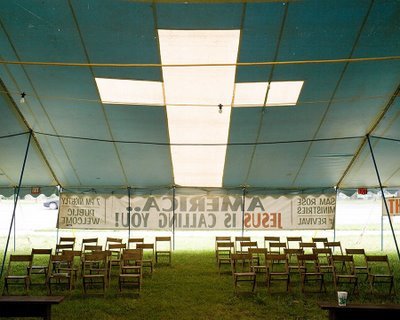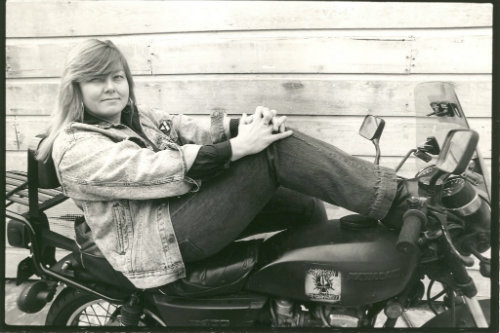What do you think?
Rate this book


320 pages, Paperback
First published March 1, 1992
Things come apart so easily when they have been held together with lies.
Men could do anything, and everything they did, no matter how violent or mistaken, was viewed with humor and understanding.

”Uncle Earle was my favorite of all my uncles. He was known as Black Earle for three counties around. Mama said he was called Black Earle for that black black hair that fell over his eyes in a great soft curl, but Aunt Raylene said it was for his black black heart. He was a good-looking man, soft-spoken and hardworking. He told Mama that all the girls loved him because he looked like Elvis Presley, only skinny and with muscles. In a way he did, but his face was etched with lines and sunburned a deep red-brown. The truth was he had none of the Elvis Presley’s baby-faced innocence; he had a devilish look and a body Aunt Alma swore was made for sex. He was a big man, long and lanky, with wide hands marked with scars. ‘Earle looks like trouble coming in on greased skids.’”
”I looked at his hands. No he never meant to hurt me, not really, I told myself, but more and more those hands seemed to move before he could think. His hands were big, impersonal, and fast. I could not avoid them. Reese and I made jokes about them when he wasn’t around--gorilla hands, monkey paws, paddlefish, beaver tails. My dreams were full of long fingers, hands that reached around doorframes and crept over the edge of the mattress, fear in me like a river, like the ice-dark blue of his eyes.”



"A man has needs," they laughed each time they got together. "So what you suppose a woman has?" "Men!" one of them would always answer in a giggling roar. Then they would all laugh til the tears started running down. I wasn't at all sure what was so funny, but I laughed anyway. I liked being one of the women with my aunts, liked feeling a part of something nasty and strong and separate from my big, rough boy cousins and the whole world of spitting, growling, over bearing males.

”Oh, but that’s why I got to cut his throat,” she said plainly. “If I didn’t love the son of a bitch, I’d let him live forever.”
I remembered Aunt Alma’s direct look this afternoon when she’d talked about loving Wade, about wanting to kill him. I didn’t understand that kind of love. I didn’t understand anything.
They did what they could. The sisters sent Mama a wedding present, a love knot Marvella had made using some of her own hair, after Maybelle had cut little notches in their rabbits’ ears under a new moon, adding the blood to the knot. She set the rabbits loose, and then the two of them tore up half a dozen rows of their beans and buried honeycomb in a piece of lace tablecloth where the beans had flourished. The note with the love knot told Mama that she should keep it under the mattress of the new bed that Glen had bought, but Mama sniffed the blood and dried hair, and shook her head over the thing. She couldn’t quite bring herself to throw it away, but she put it in one of her flower pots out in the utility room where Glen wouldn’t find it stinking up their house.
We’re smart, I thought. We’re smarter than you think we are. I felt mean and powerful and proud of all of us, all the Boatwrights who had ever gone to jail, fought back when they hadn’t a chance, and still held on to their pride.
“Nobody wants me to have nothing nice,” he’d complain, and then get in one of his dangerously quiet moods and refuse to talk to anyone. He brooded so much that Reese and I patrolled the yard, picking up windblown trash and do turds – anything that would make him mad. Every new house made him happy for a little while, and we tried to extend that period of relative calm as much as possible, keeping everything clean and neat.
. . .
His left hand reached for me, caught my shoulder, pulled me over his left leg. He flipped my skirt up over my head and jammed it into that hand. I heard the sound of the belt swinging up, a song in the air, a high-pitched terrible sound. It hit me and I screamed. Daddy Glen swung his belt again. I screamed at its passage through the air, screamed before it hit me,. I screamed for Mama. He was screaming with me, his great hoarse shouts as loud as my high thin squeals, and behind us outside the locked door, Reese was screaming too, and then Mama. All of us were screaming, and no one could help.
. . .
He never said, “Don’t tell your Mama.” He never had to say it. I did not know how to tell anyone what I felt, what scared me and shamed me and still made me stand, unmoving and desperate, while he rubbed against me and ground his face into my neck. I could not tell Mama. I would not have known how to explain why I stood there and let him touch me. It wasn’t sex, not like a man and a woman pushing their naked bodies into each other, but then, it was something like sex, something powerful and frightening that he wanted badly and I did not understand at all. Worse, when Daddy Glen held me that way, it was the only time his hands were gentle, and when he let me go, I would rock on uncertain feet.
. . .
Two weeks later we were back home with Daddy Glen. Nothing had changed. Everything had changed. Daddy Glen had said he was sorry, begged, wept, and swore never to hurt me again. I had stood silent, stubborn, and numb.
The need to make my world believable to people who have never experienced it is part of why I write fiction. I know that some things must be felt to be understood, that despair, for example, can never be adequately analyzed; it must be lived. But if I can write a story that so draws the reader in that she imagines herself like my characters, feels their sense of fear and uncertainty, their hopes and terrors, then I have come closer to knowing myself as real, important as the very people I have always watched with awe.
. . .
By the time I taught myself the basics of storytelling on the page, I knew there was only one story that would haunt me until I understood how to tell it—the complicated, painful story of how my mama had, and had not, saved me as a girl. Writing Bastard Out of Carolina became, ultimately, the way to claim my family's pride and tragedy, and the embattled sexuality I had fashioned on a base of violence and abuse.
Source: http://www.historyisaweapon.com/defco...
There is a difference between fiction and nonfiction deeper than technique or intention. I value both but genuinely believe that fiction can tell a larger truth. I have built my life on what I learned in books that took me inside characters whose struggles and dilemmas revealed intricate and astonishing things about human character. I have no doubt that some of those novels were based in part on the author’s experiences or real lives—but by moving the narrative over to fiction the author took on the responsibility of fully imagining a world separate from the perspective of one person’s experience.Many years ago, when I had been called for jury duty, a friend told me she could never serve on a case that involved abuse or rape. "That just doesn't happen in my world" she said. I was reminded of this when, again in the Afterword, Allison relates some of her fight in Maine against censorship of this novel.
In that gymnasium in Maine, I heard people speak about their horror, the horror that their children would be told stories they did not want them to know. I understood too much of that—the desire to inhabit a world in which terrible things do not happen, and therefore do not have to be explained. I want a world in which no child goes hungry, fearful, or ashamed.Given the subject of this novel, it seems almost trivial to mention plot, prose, and characterization, but I almost never leave those unsaid. The prose does what it is meant to do, but there are no beautiful sentences here, no stellar vocabulary. There is plot only in the sense of "this happened" and "that happened" and all of that made me somewhat angry, but mostly very very sad. What is worth noting is characterization. Allison takes even the minor characters beyond mere caricatures.